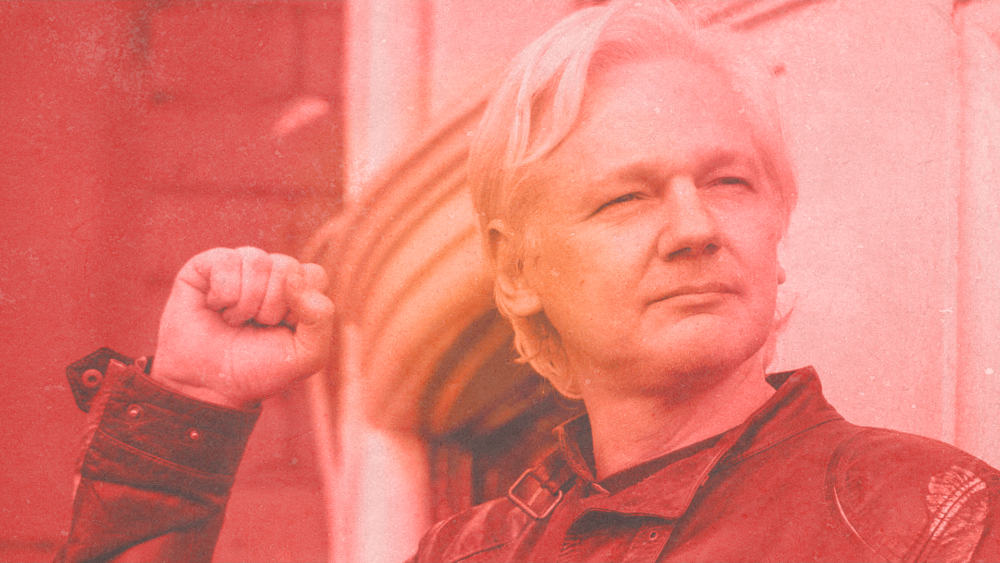The hearing ended without a judgement, for which we will likely have to wait weeks. In the meantime, the campaign for Assange’s freedom grows
As Western powers fuel a genocide in Gaza that has killed scores of journalists and crushed press freedom across Palestine, journalism itself was put on trial this week.
On Tuesday and Wednesday, the London High Court sat to hear Julian Assange’s extradition case to the United States. One of the two judges, Justice Jeremy Johnson has been specially vetted by the UK authorities to access top secret information and has represented the UK’s MI6 spy agency and Ministry of Defence.
If extradited, Assange faces 175 years in a supermax prison. His only crime: Wikileaks’ revelation of Western war crimes in Afghanistan, Iraq, and beyond. The High Court’s ruling will not only decide Assange’s freedom. It will also determine the right to know what our governments do in our name. Assange is not on trial alone. Journalism itself is on trial.
On Tuesday, Assange’s defence spoke for his freedom, our right to know and journalists’ right to free speech. They argued that not only is Assange already gravely ill from five years in Belmarsh prison – he broke a rib from just coughing in December and was too sick to attend court even by video link — but he cannot receive a fair trial in the US, given that the CIA planned to assassinate him.
The US case against Assange is, in essence, political. His crusading journalism revealed their crimes and embarrassed their three letter agencies. That’s why he is the first journalist in history to be charged under the US Espionage Act. This alone should nullify the extradition case; political offences are exempt from extradition under the relevant US-UK treaty.
Ironically, given journalism itself was on trial, access to follow proceedings by journalists was extremely restricted. First, access to the live stream was only available to journalists in England and Wales — and then the audio for the live stream was broken. Second, those journalists who made it into the High Court itself had to make do with a “gallery with no tables to take notes or use computers” where they could not “hear or watch the hearing properly at all,” according to Italian journalist Stefania Maurizi.
The hearing ended without a judgement, for which we will likely have to wait weeks. In the meantime, the campaign for Assange’s freedom grows.
The outside of the Court played host to large protests and a throng of international media, where several PI figures and members of the Belmarsh Tribunal spoke to both protestors and media. The speakers, much as the Belmarsh Tribunal has done, described how Julian Assange’s freedom represents freedom of the press, which represents opposition to the war machine.
Do you want to be informed of DiEM25's actions? Sign up here










